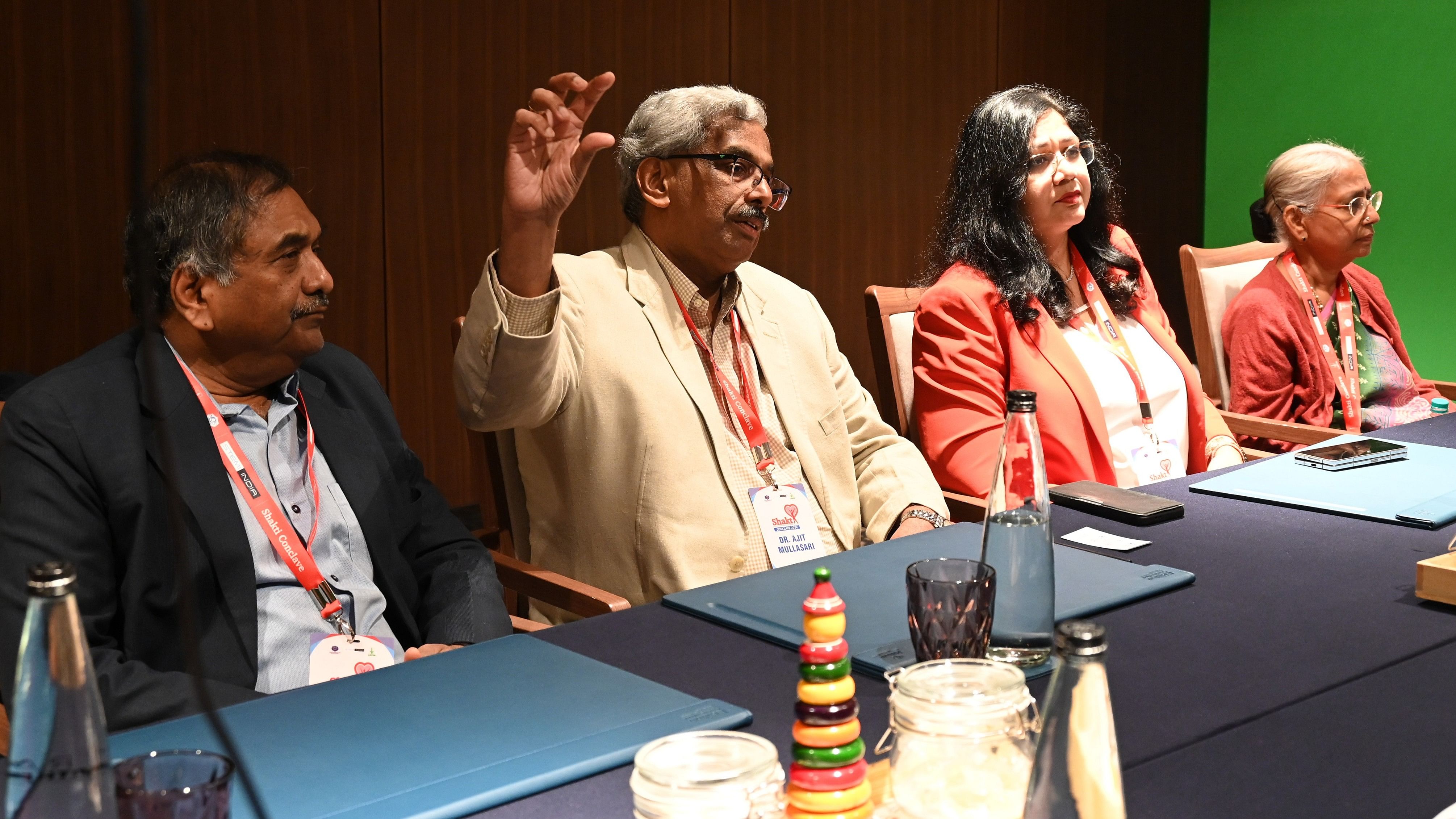
The two-day Shakti Conclave 2.0 by Lupin brought together cardiologists from across the country to address cardiovascular risk factors and early management in women.
DH PHOTO/Pushkar V
Bengaluru: Despite being one of the leading causes of death among women, cardiovascular disease-related symptoms are either underreported or reported late by women due to several factors, which puts them in a bad spot, noted specialists at the Shakti Conclave 2.0 in the city on Saturday.
The two-day Shakti Conclave 2.0 by Lupin, a pharma company, in partnership with STEMI and Women in Cardiology and Related Sciences, brought together leading cardiologists from across the country to address cardiovascular risk factors and early management in women. “Women do not present the same symptoms as men; their symptomatology is a little different. They need to be advocated for because women need to know that their symptoms can be different,” said Dr Sarita Rao, senior interventional cardiologist, Apollo Hospitals, Indore.
Doctors highlighted the gender gap that existed in clinical trials and testing, which meant existing data is predominantly because of trials on men and very little is known about heart disease in women.
“We must change how we teach medical college students. Instead of saying atypical symptoms are seen in women, we must emphasise that they are only different so that we don’t miss women who have heart attacks,” said Dr Thomas Alexander, senior interventional cardiologist, KMCH Hospital, Coimbatore.
Dr Mullasari Ajit S, Director-Cardiology, Madras Medical Mission, said that, for a study in Tamil Nadu, only 350 of the total 2,400 patients with heart attacks that showed up were women, less than 20% of the total. “What was worrying is that they presented 20 minutes later than men to the hospital and once they had a heart attack, the mortality was double in hospitals. Mortality was around 5% in men, which was around 10% in women,” he said.
Familial responsibilities, unequal access to medical help, lack of support from families or healthcare practitioners, and an indifferent attitude are some of the socio-cultural issues that need to be tackled, doctors noted. “Annual health checks are common in men. Women should also undergo annual health checks and immediately get tested for any breathlessness, fatigue, and pain they feel,” said Prof M Jyotsna, Professor and HOD (Retd), Nizam’s Institute of Medical Sciences.